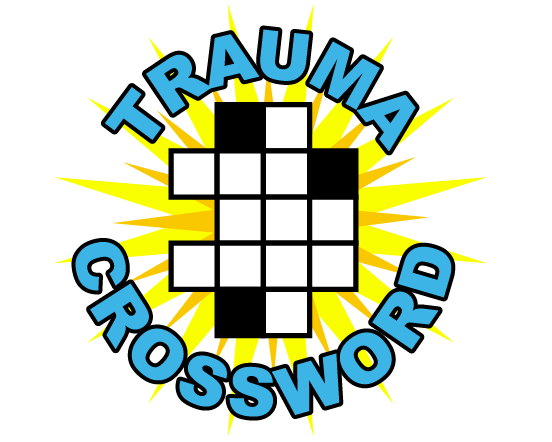|
|

|
*|MC_PREVIEW_TEXT|*
06/10/2025
|
|
IT’S TRAUMA TUESDAY
Is a Free Weekly Newsletter
Brought to you by
TCAR Education Programs
|
|
For nurses and other clinicians practicing anywhere
along the trauma care spectrum
|
|
|
|
|
|
Take a quick test of your trauma care knowledge
|

|

|

|
|
|

|
|
Article of the Week
TBI: It's Not Just the Brain
|
|
Traumatic brain injury (TBI), even when isolated, can cause dysfunction across multiple body systems well beyond the central nervous system, including the cardiovascular, pulmonary, immune, and metabolic systems. These widespread effects influence both acute and chronic treatment strategies, including pharmacologic management and general medical care. Clinicians must consider the extracranial impacts of brain injury when making clinical decisions and interpreting research outcomes.
|
|
|
|
Evanson NK, Veldhi P, Scherpenberg C, Riccobono JM, Eid H, McGuire JL. Extracranial Effects of Traumatic Brain Injury: A Narrative Review. Clin Pract. 2025;15(3).
|
|
|

|
|
Media of the Month
Bullets Go Deep by Dr. Laurie Punch
|
|
June is National Gun Violence Awareness Month. Bullets have a ripple effect of destruction, both physical and psychological, that can leave communities reeling. In this TED talk, Dr. Laurie Punch brings her experience as a trauma surgeon to the subject of gun violence by making bullets the focus of discussion in this 18-minute video. Many trauma programs distribute gun locks or gun safes and have established peer mentoring programs to decrease the damage associated with bullets. Ask how your trauma center is supporting firearm injury prevention programs to curb gun violence in your community. Click the link to listen now.
|
|
|
|
|
![]()
|

|
|
What's the Difference Between Trauma Nursing Courses?
|
|
Did you ever wonder how the TCAR and PCAR courses compare to other well-established trauma nursing education courses? The Trauma Course Comparison Chart, located on the TEP Resources page, compares key features, verification cycles, formats, and continuing education credits among the five standardized trauma nursing courses recognized by the American College of Surgeons. Notably, the ACS requires that nurses receive trauma education that is commensurate with their scope and patient population. For nurses working with injured patients in the POST-RESUSCITATION phase of care, the TCAR and PCAR courses provide quality, value, and convenience. See for yourself at the link below.
|
|
|
|
|
|
You can reveal a letter or the entire word if you get stuck
|

|

|

|
|
|
![]()
|

|
|
NEW Drivers and OLD Vehicles: A Fatal Combination
|
|
Passenger vehicle safety features have undergone significant improvements over the past decade and a half. In this single-center study of fatal crash data (2016-2021), teens were 30% more likely to be involved in a deadly collision. Could this be because they were more likely to be driving older cars? Vehicles between six and fifteen years old were associated with a 19% increased risk of a fatal crash compared with newer models. This information might make parents reconsider handing the keys to their old jalopy to the youngest driver in the family. Read more at the link below.
|
|
|
|
|

|
|
|
|
|
|
Follow Us
Want to join the trauma care conversation?
Follow Us on Facebook, Instagram, and X.
|

|
|
|
|
|

|
|
TCAR Education Programs
tcarprograms.org
info@tcarprograms.org
Office: (503) 608-4900
International Toll-Free: +1 800-800-2015
|
|
View Past Issues
Send Feedback
|
|
Copyright © 2025 TCAR Education Programs. All rights reserved.
You are receiving this email because you opted in by purchasing or registering for a course or subscribing to our newsletter on our website.
Want to change how you receive these emails?
You can
update your preferences or
unsubscribe
|